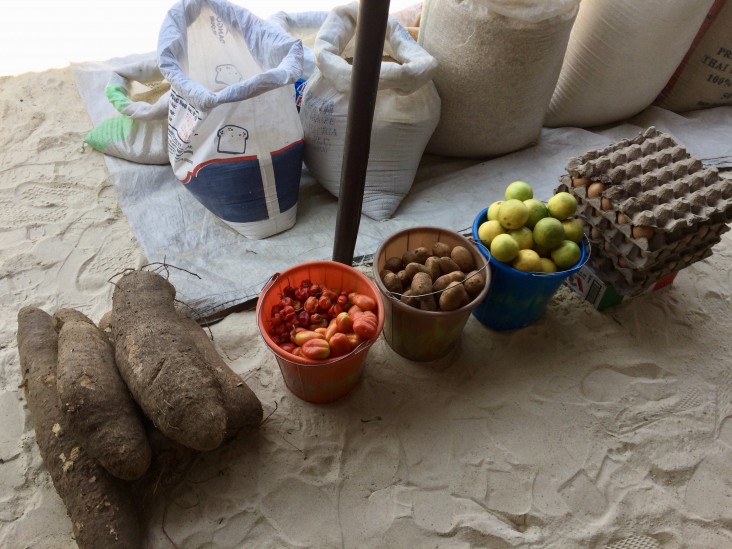Speeches Shim

December 2017—It was a good day when Ramatu*, a widowed mother in northeast Nigeria, first used an electronic voucher to purchase food: “I was so happy. I danced when I got home, telling my children and grandchildren that our days of hunger have gone.”
Every month, Ramatu receives an electronic credit—supported by USAID—to buy food at local vendors’ shops, where “we can go and buy food, any food of our choice.”
She did not always have this option. Like many people in the region, Ramatu has been touched by the prolonged conflict perpetuated by Boko Haram. Her husband, a farmer and businessman, was killed in a bomb blast at a mosque. Her daughter, too, was lost, leaving Ramatu to care for her own three children, as well as three young grandchildren. The violence forced Ramatu and her family to flee their hometown; they now live in a settlement in a regional metropolitan area.
Cut off from her home, livelihood and support system, Ramatu had few resources to provide for herself and her household. When possible, her new neighbors shared their food; however, they were facing their own difficulties. Sometimes, Ramatu explained, her family had to beg for food: “We would all go out to beg …. There were days we didn’t come home with anything, asking my dear children to go to bed hungry.”
Ramatu’s situation is not unique. Approximately 1.7 million people are internally displaced within Nigeria, and over 200,000 Nigerians have been forced to flee to neighboring countries. Food insecurity is rife in the region, with exorbitant food prices, low harvests and limited job opportunities restricting families’ access to food and income. As of December 2017, 2.6 million people face life-threatening hunger in the northeast. Furthermore, a credible threat of famine persists in areas where humanitarian organizations are unable to deliver assistance.
However, USAID support is staving off hunger in areas that humanitarian organizations can access. In October 2017, USAID’s partners—including the U.N. World Food Program and multiple NGOs—provided life-saving food assistance to approximately 1.9 million people in northeast Nigeria. In areas where markets are functioning, like Ramatu’s temporary home, USAID supplies electronic food vouchers through mobile technology to vulnerable families. Households can then redeem these vouchers in exchange for items in nearby stores, stimulating local economies and enabling households to choose the variety of nutritious foods that best meets their needs.
Food is not only a source of sustenance and energy. It is also a source of comfort, a reminder of home, and an opportunity to bring people together, as Ramatu explained: “With this food now, I feel more relaxed. I used to hide and cry anytime there was nothing for me to give the children, missing my husband, wishing he was still alive to provide for us. Every time I would think of us begging and staying hungry, I felt so helpless and all I could do was cry. Now I no longer cry, not that I don’t still miss my husband, but because I know my husband will be happy wherever he is now that we have food.”
As illustrated by Ramatu’s story, USAID’s work in northeast Nigeria is not only saving lives, but also making life more livable.
*Name changed to protect identity.
LINKS
Follow @USAIDNigeria and @USAIDFFP, on Facebook

Comment
Make a general inquiry or suggest an improvement.